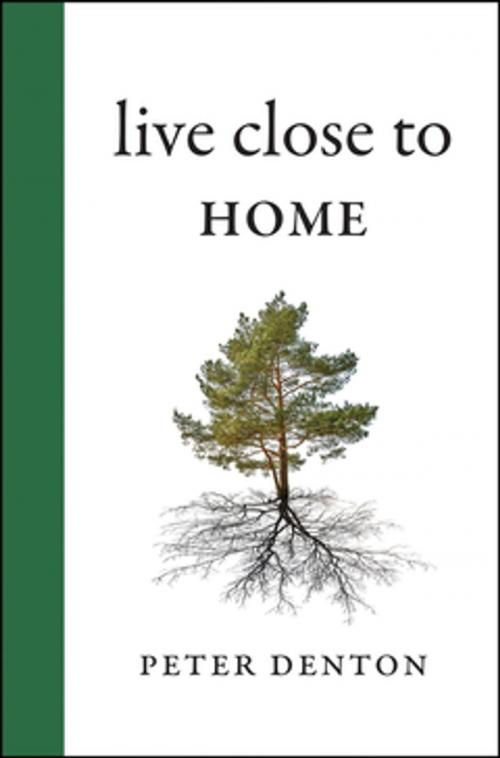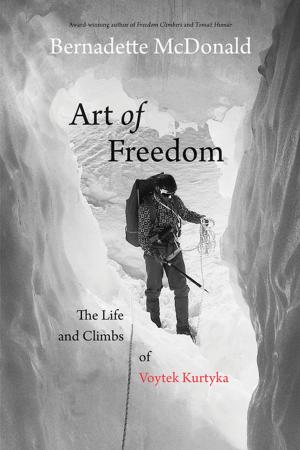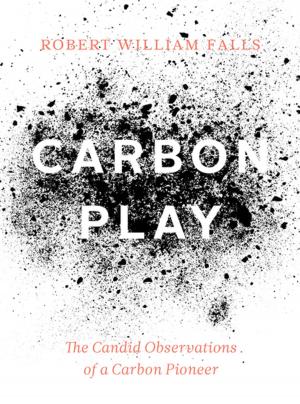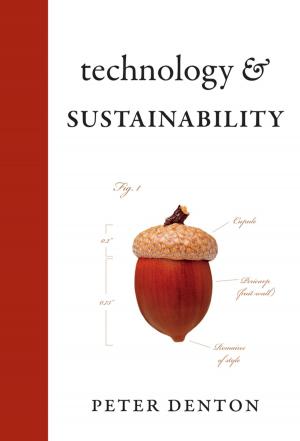Live Close to Home
Nonfiction, Social & Cultural Studies, Political Science, Government, Public Policy, Science & Nature, Nature, Environment, Environmental Conservation & Protection, Home & Garden, The Home| Author: | Peter Denton | ISBN: | 9781771601832 |
| Publisher: | RMB | Rocky Mountain Books | Publication: | December 1, 2016 |
| Imprint: | RMB | Rocky Mountain Books | Language: | English |
| Author: | Peter Denton |
| ISBN: | 9781771601832 |
| Publisher: | RMB | Rocky Mountain Books |
| Publication: | December 1, 2016 |
| Imprint: | RMB | Rocky Mountain Books |
| Language: | English |
In his third thought-provoking RMB manifesto Peter Denton explains how we can change course toward a sustainable future in immediate and practical ways – and why it could make all the difference for ourselves and for future generations.
As individuals and as a culture and society, we have increasingly emphasized the global village over the village in which we actually live. Our preference for the faraway is at the heart of the environmental and social catastrophes that today seem utterly unavoidable. If things are going to change, there are four words of power we need to embrace: Live close to home.
If we do, if we focus on changing and improving the aspects of our lives over which we have control, the system effects of such a transformation can only be positive for ourselves, our families, our communities and the world.
Gift Ecology: Reimagining a Sustainable World (RMB, 2012) explored the historical choices underlying our Machine Civilization, with its emphasis on the material world and mechanical systems, fuelled by the economics of exchange. It offered an alternative perspective, expressed in relationships and grounded in the possibilities unleashed by gifts, as the key to an ecologically sustainable society.
Technology and Sustainability (RMB, 2014) looked at how values underpin all the choices we make every day about our lives, our technologies and our world. Technology is in our heads, not our hands, so we have both the power and the responsibility to make better choices, based on different values, if we are going to advance toward a sustainable future.
Live Close to Home (RMB, 2016) completes the picture, arguing that in a climate-changing world, ecological and social resilience must be rooted in local communities, in our relationships with each other and with the physical place we call “home.”
In his third thought-provoking RMB manifesto Peter Denton explains how we can change course toward a sustainable future in immediate and practical ways – and why it could make all the difference for ourselves and for future generations.
As individuals and as a culture and society, we have increasingly emphasized the global village over the village in which we actually live. Our preference for the faraway is at the heart of the environmental and social catastrophes that today seem utterly unavoidable. If things are going to change, there are four words of power we need to embrace: Live close to home.
If we do, if we focus on changing and improving the aspects of our lives over which we have control, the system effects of such a transformation can only be positive for ourselves, our families, our communities and the world.
Gift Ecology: Reimagining a Sustainable World (RMB, 2012) explored the historical choices underlying our Machine Civilization, with its emphasis on the material world and mechanical systems, fuelled by the economics of exchange. It offered an alternative perspective, expressed in relationships and grounded in the possibilities unleashed by gifts, as the key to an ecologically sustainable society.
Technology and Sustainability (RMB, 2014) looked at how values underpin all the choices we make every day about our lives, our technologies and our world. Technology is in our heads, not our hands, so we have both the power and the responsibility to make better choices, based on different values, if we are going to advance toward a sustainable future.
Live Close to Home (RMB, 2016) completes the picture, arguing that in a climate-changing world, ecological and social resilience must be rooted in local communities, in our relationships with each other and with the physical place we call “home.”















